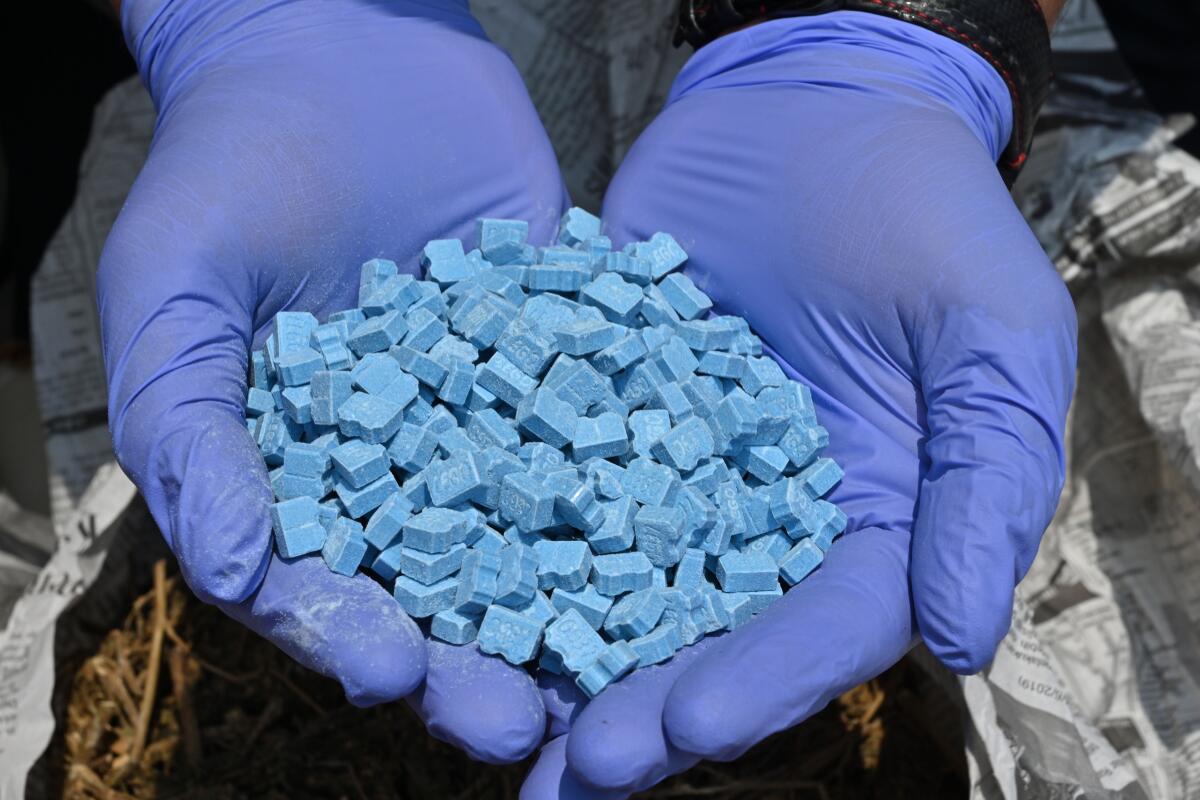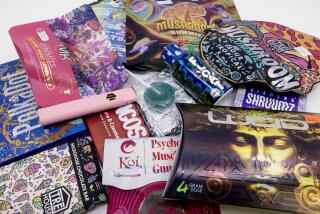Op-Ed: Psychedelic treatments are here, but doctors aren’t prepared

- Share via
A patient asks her doctor: “I’m trying mushrooms this weekend. What do you think?”
Will the average American doctor be prepared to advise her about risks and best practices? We fear not.
Most psychedelics, such as psilocybin, MDMA and LSD, are not yet legal in the U.S. However, a growing body of evidence shows their potential against certain mental health problems, and patients will be using these treatments with or without a prescription.
That’s especially true in California. Oakland and Santa Cruz have already decriminalized entheogenic plants and fungi containing psychoactive substances. State lawmakers are now considering decriminalizing possession and sharing of psychedelic substances for people 21 or older. Senate Bill 519 was passed by the Assembly Health Committee on July 13 and is headed to the Assembly Appropriations Committee. If it were to succeed before the Assembly and again back at the Senate, it could land on the desk of Gov. Gavin Newsom to veto or sign.
The federal government has supported finding new effective psychiatric treatments. The FDA has designated MDMA-assisted and psilocybin-assisted therapy as breakthrough therapies, a status granted when preliminary clinical evidence indicates that a drug may demonstrate substantial improvement over available therapies. It also approved a nasal spray derived from the anesthetic ketamine, considered by some to be a psychedelic, for treatment-resistant depression.
Whether or not lawmakers are ready to legalize psychedelic treatments, hospital and health systems have a duty to educate skeptical physicians, nurses and therapists so they can give good advice about such drugs. They should do so gladly, because psychedelic therapy has proven remarkably effective in treating certain mental health disorders.
A recently published peer-reviewed study of MDMA-assisted therapy to treat post-traumatic stress disorder demonstrated that two months after the trial, 67% of the MDMA-assisted therapy group no longer had PTSD, compared with 32% for the control group that received talk therapy and an inactive placebo.
Psilocybin has also demonstrated astounding results. In a study of cancer patients with life-threatening diagnoses and symptoms of depression and/or anxiety, psilocybin produced large decreases in depression and anxiety that sustained for about 80% of patients at a six-month follow-up.
Many psychedelics are effective against depression and anxiety because they take a very different approach from the most common prescriptions. Rather than suppressing symptoms, the psychedelic experience can spark deep reflection that motivates behavioral change.
In the U.S., 30% of adults report symptoms of anxiety or depressive disorder (33% in California). More than half of patients receiving treatment for depression do not respond to approved depression medications. This is a vast population who could benefit if medical professionals better understood uses of psychedelics. Many providers and patients also need to unlearn some myths.
Psychedelics are not addictive. In fact, they can be effective in treating nicotine addiction and alcohol abuse.
Psychedelics will not make you crazy. In an analysis of data from the U.S. National Survey on Drug Use and Health, researchers found psychedelic use was associated with significantly reduced odds of psychological distress and suicidal thinking, planning and attempts.
Psychedelics are not highly toxic. A study in which 20 drugs were assessed for harm factors ranked MDMA, LSD and psilocybin as the least dangerous to users and others. (Alcohol was the most harmful.)
However, psychedelics are powerful substances. Providers should inform patients that these substances could leave the user vulnerable to emotional, physical or sexual harm if not in a safe environment; could in rare cases cause a psychotic reaction, more likely among those with a history or family history of schizophrenia or psychosis; or, if taken with medications that increase serotonin levels, could cause a dangerous overload.
Without standardized education on real risks like these, providers may be making their best guess based on outdated assumptions and stigma.
Some doctors have sought reliable information on their own. It’s out there. Medical school students at Harvard, Stanford, Yale and elsewhere have formed psychedelic education groups. Newly formed psychedelic research centers at New York University and UC Berkeley will have training arms. Advocacy and educational organizations have created psychedelic training programs.
But momentum for such training has not yet reached executives and administrators of hospitals and healthcare systems, who will play a critical role in standardizing credible provider information, including — perhaps especially — for those who are least informed about and most opposed to psychedelic treatment.
It’s not a question of whether people will use powerful psychedelics in pursuit of mental health. They do and they will. Let’s hope patients feel comfortable talking to their healthcare providers about it. When providers face that moment, they should know how to keep patients safe — and they should know better than to stand between ill patients and promising treatments.
Rick Doblin is the founder and executive director of the Multidisciplinary Assn. for Psychedelic Studies. Jennifer Ouyang Altman co-founded the Stanford Psychedelic Science Group to destigmatize the use of psychedelics for mental health.
More to Read
A cure for the common opinion
Get thought-provoking perspectives with our weekly newsletter.
You may occasionally receive promotional content from the Los Angeles Times.










